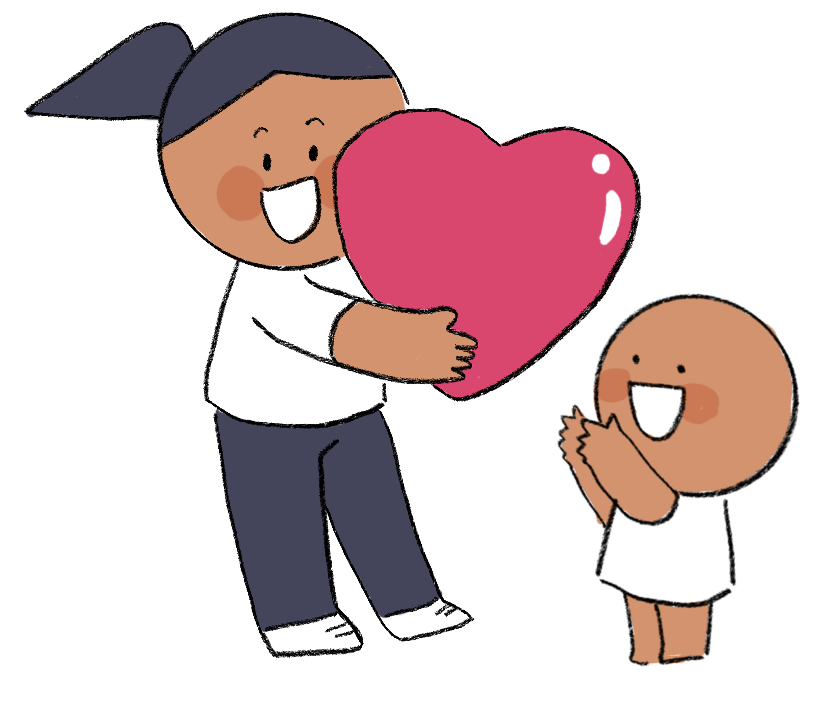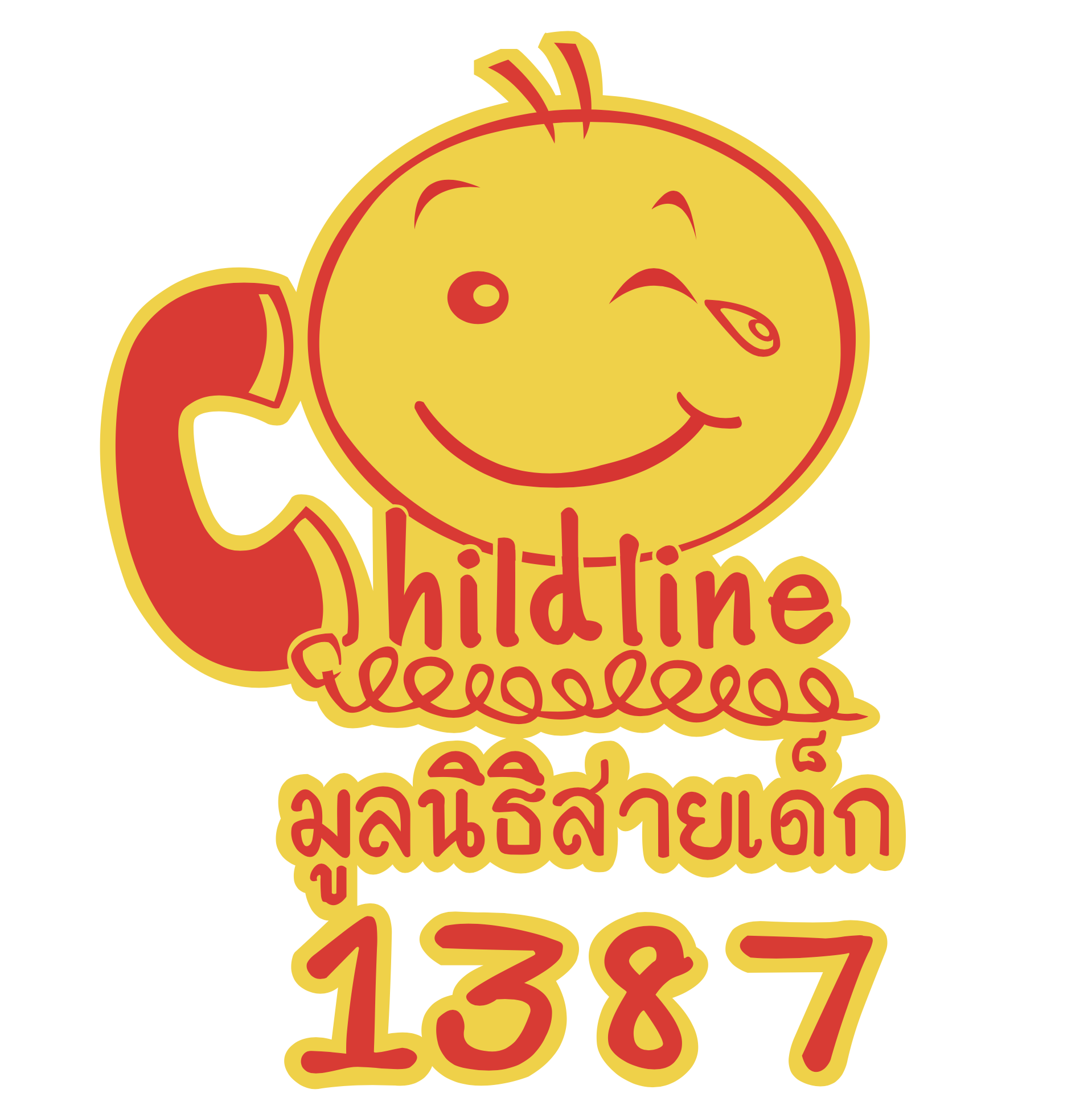Contact Centre





We're here to help
Every month thousands of children reach out to Childline Thailand for emergency assistance. Our Call Centre is online 24/7 and we receive calls and messages from vulnerable children asking for help every 15 minutes. Childline provides all of its services for free, including professional counselling. links to emergency services, case management, and legal assistance to children and youths under 18 years of age.

Our Services
Childline staff assists children and families in multiple ways on a daily basis – problems range from loneliness
and family misunderstandings to severe abuse cases.
Emergency Protection and Care
Mental Health Support
Childline Thailand‘s counseling on the phone is a very important part of our work. Besides calls for help that require immediate intervention, Childline Thailand operates a 24-hour free phone service for children and families who need advice but do not know where to turn to.
Appreciating the importance of every child and each family problem allows for mutual human respect to be communicated down the phone line. This leads to an efficient dialogue that can speed up the communication process leading to trust and cooperation. This is the first step to erase fear and uncertainty usually experienced by callers on their first call.
Trust plays a major role in establishing a long term friendship until children and families feel secure that their problems will not be reported to the press or the police. Above all they must trust that Childline staff are well equipped to work with them to resolve a problem and can come up with various choices that might suit them. Staff are trained to know how to create trust around the confidentiality and privacy of the caller’s issue which, in turn, enables them to advise or assist in a very efficient manner. Often, Childline staff are asked not to tell parents about a teen pregnancy or love affair. This requires a great deal of sincere and frank discussion regarding what is best for the young adult and, with the child’s agreement, careful planning must be considered for Childline’s intermediation with the parents or immediate family members. These types of problems are being experienced by younger and younger children every day. It is no longer rare to find children as young as 12 or 13 years old to ask for this type of advice.
Childline Thailand works hand-in-hand with children and families. Following well established trust, children and families can seek various options with Childline’s guidelines and assistance towards solutions. Nevertheless, at the end of the day, the decision is always up to the children and their families. Many people need help from Childline to assist them to find the information. With this information, Childline is often required to coordinate proceedings on the person’s behalf to make sure that they are getting the right kind of assistance.
Education
Legal Aid
Under international law, every child is entitled to registration of his or her birth, including children born to irregular migrants. In practice, there are many problems in the implementation of this rule, leaving many children stateless.
“The child shall be registered immediately after birth, and has the right to a name and nationality, and to know and be cared for by his or her parents.
Article 7 on the Convention on the Right of the Child States: “The State shall ensure the implementation of the rights in accordance with national law and its obligation under the relevant international instruments in the field, in particular when the child would otherwise be stateless.”
In Thailand, although the real figure is unknown, it is believed that over one million children, born on Thai soil, of both Thai and migrant origins, such as Burma, Laos, Cambodia remain unregistered. The reasons why parents do not register their children at birth include: lack of awareness of the importance of the registration; the cost in both time and money in registering a new birth; the distance to a registry office; legal, social and cultural barriers: and for most migrants, fear of being caught for illegal entry. Thailand is party to the 1989 Convention on the Rights of the Child; however, it imposed reservations to the Convention when it rectified the Convention in 1992.
Emergency Financial Assistance
Thailand’s economic growth over the last two decades has been very impressive. According to UNICEF, poverty has fallen around two thirds since 1990, even despite the 1997 economic crisis. However, huge income disparities remain and benefits of economic progress have not been shared by all the children in Thailand.
Many families that call Childline fall below the poverty line
Families in these situations tend to find they lack regular jobs, live in dilapidated housing and usually have histories of substance abuse and violence. Children from such homes can be deprived of the whole range of child rights to which they are entitled.
Even though violence and abuse do seem to happen more often in poverty circumstances it can be best attributed to the quality of parenting rather than the poverty itself. We have had many calls for financial assistance where even though families were poor, they have managed to look after their children well, and just require a little extra funding to secure the child with all the basic needs to continue to develop happily within the security of their home. Another common occurrence is when children are left with their grandparents, while parents migrate to the urban centers in search of work. Grandparents quite often try their best, despite their old age, and a bit of extra funding can significantly improve the child’s quality of life. On the other hand, Childline does come across many children who suffer neglect and loneliness within the homes of a well-to-do or a middle income family. In a way, it can be more difficult for a child of a middle or upper income family to seek help for fear of bringing shame upon the family.
Although the financial situation of the family has a direct impact on a child’s life, it is by no means the deciding factor leading to child abuse, violence or exploitation. While in some poor northern areas of Thailand, a family might turn to selling their children for trafficking and exploitation, other families who are equally poor would never consider even the slightest possibility of doing so.
Its Time to Take Action
Challenge
Childline staff assists children and families in multiple ways on a daily basis – problems range from loneliness and family misunderstandings to severe abuse cases. “Child abuse is more than broken bones and bruises. It leaves deep emotional scars which, if remain untreated, will haunt the child for the rest of his or her adult life”
Solution
Childline Thailand works hand-in-hand with children and families. Following well established trust, children and families can seek various options with Childline’s guidelines and assistance towards solutions. For many children, the 21st century hub of information remains a labyrinth which they have no means of venturing in by themselves. Childline Thailand has 8 permanent telephone staff who are undergraduates majoring in Clinical Psychology and Sociology.
Long-Term Impact
Childline have supported over 1.2 million children in the last ten years. Our impact is an improved society with safer, happier and more engaged youths. We will continue to provide children in Thailand with trusted and reliable access to protection, health and human services, as is their right, and which the Thai Government adheres to through its ratification of the UN Convention on the Rights of a Child.





